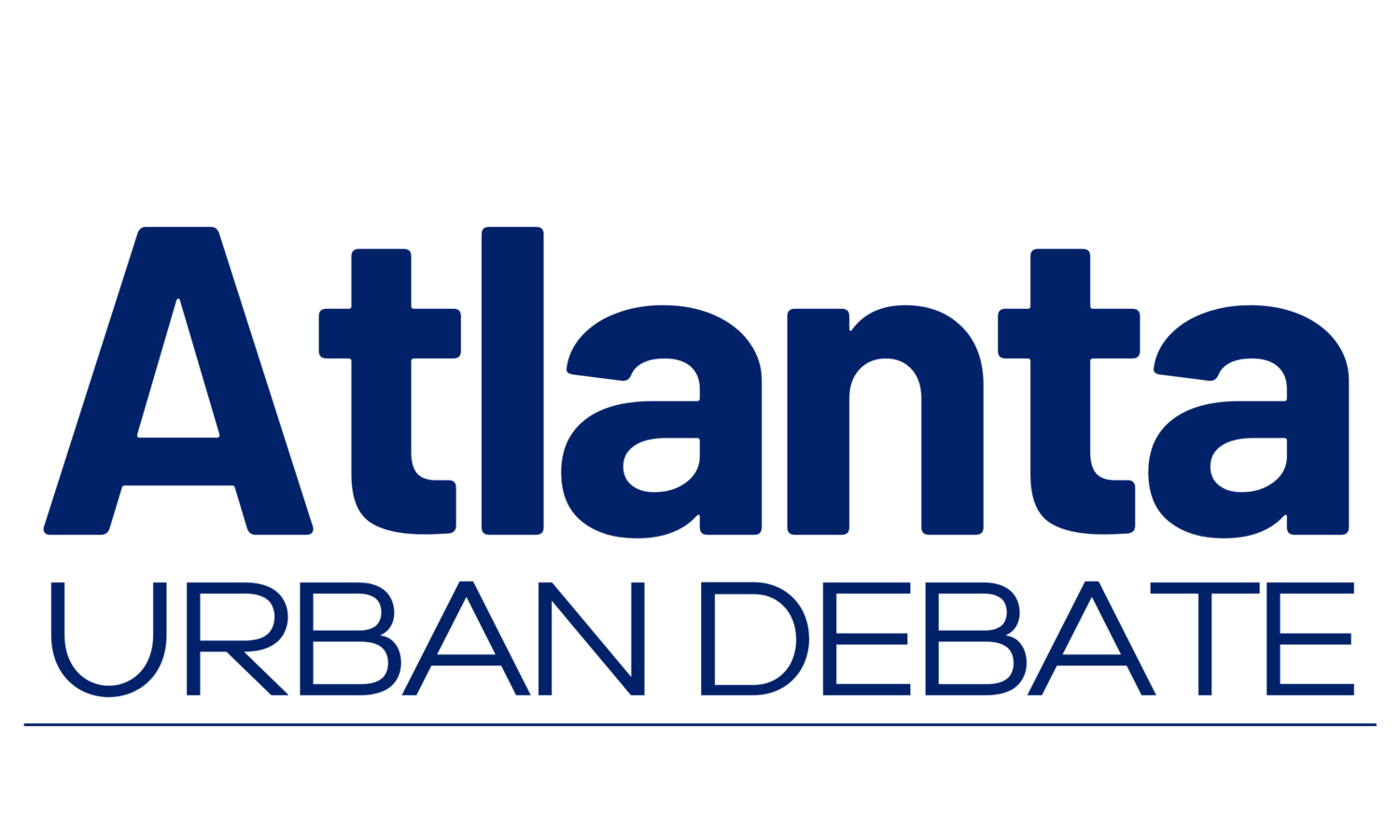The Atlanta Urban Debate League is committed to providing excellent debate education programs, services, and opportunities to diverse students, educators, and members of the community!
Introducing Policy Debate
Working Through the Evidence Packet
Introduction
The AUDL provides a packet with all of the evidence students in most divisions will need. At tournaments, students will be debating out of the same packet; every round will start similarly, with much of the debating consisting of how students explain and respond to arguments.
There are two versions of most of the evidence packets as of the 2024-2025 season. One is a “workbook” which contains all the evidence, along with fill-in-the-blank sections with brief explanations to help students prepare parts of their speeches. We highly recommend this for students new to debate. The other version contains only the evidence without any fill-in-the-blank sections or explanatory blurbs other than the argument overviews; if you use this version to reduce printing but would still like for your students to use speech templates (or just need extras), there are copies of just the templates that can be referenced or printed separately in the “Speech Templates” folder located within the evidence folder.
The evidence packet is organized by speech, with all affirmative evidence, then all negative evidence. The table of contents and each individual page indicate which evidence goes with which speech and overall argument.
Each individual piece of evidence (called a card) has 3 parts:
The tag gives a summary of the argument made by the card. Debaters should read the entirety of the tag out loud.
The cite gives the author and publication information for the evidence. Debaters should read the bold part, which includes the author surname and year of publication (and sometimes highlights the author’s qualification). Debaters should not say the smaller text included with details, but it is useful for them to read it on their own to learn more about the author and source.
The text of the card consists of copy/pasted paragraphs from the original source. Parts supporting the overall argument are underlined. Debaters should highlight the most relevant parts of the underlined text to say during rounds.
Students will have to say every single highlighted word in order. They will not be allowed to skip or add any words when reading evidence in a round. If a card is not highlighted at all, students must say every underlined word.
Each debate round will start with both sides introducing evidence for their overall arguments by reading it. As the round progresses, students will read less evidence and give more explanations.
Learning Objectives
In this section, students should:
Learn how to read a piece of evidence (card)
Practice highlighting the reasoning in cards so that they don’t have to read every underlined word
Practice writing out their own explanations of arguments
Points of Improvement
Here are some things to look out for as students start to work with the packet:
Students do not say the correct parts of cards when reading out loud. Examples include:
Not reading the tag
Not reading the bold part of the cite
Reading the small text parenthetical of the cite
Reading words in the text of the card that are not underlined
Skipping over words/sentences that are highlighted (or skipping over anything if the card is not highlighted at all)
Students highlight all or almost all underlined words in evidence
Students are unable to explain individual pieces of evidence, even after reading the argument summaries and going over cards as a group
Signs of Progress
Here are some positive signs that students are understanding how to use the packet:
Students are able to read a card out loud correctly (tag, bold part of cite, underlined words that have been highlighted)
Students consistently highlight parts of cards that have solid reasoning to back up arguments
Students’ accurately explain what individual pieces of evidence say

